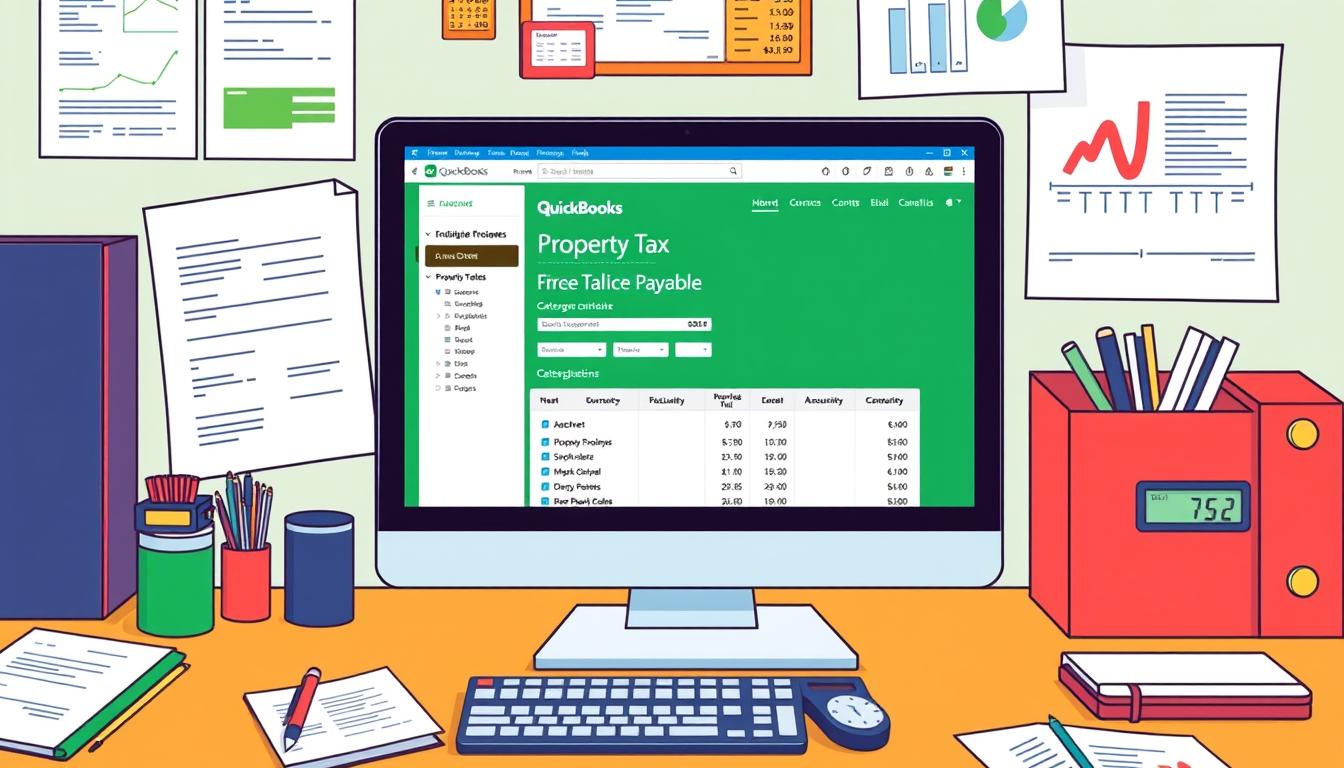
Does quickbooks do payroll

Table of Contents
QuickBooks Payroll is a powerful tool for businesses to manage their payroll. It makes calculating wages and following tax laws easy. This helps businesses stay on top of U.S. labor laws without hassle.
It works well with other accounting software. This makes managing finances smooth. It’s perfect for small and medium-sized businesses wanting to save time on payroll.
Key Takeaways
- QuickBooks Payroll simplifies payroll processing for businesses.
- Integration with accounting software enhances financial management.
- It ensures compliance with U.S. labor laws.
- The platform is particularly beneficial for small and medium-sized businesses.
- Automation features save time on payroll tasks.
Introduction to QuickBooks Payroll
Businesses looking for a reliable tool for managing employee payments often choose QuickBooks Payroll. It helps organizations handle wages, deductions, and tax withholdings efficiently. With the complexity of payroll rules growing, understanding the benefits of payroll software is key. QuickBooks offers various services tailored to different business needs, ensuring they follow federal and state laws.
User experiences show the convenience and reliability of QuickBooks payroll features. Many users like the easy-to-use interface, which makes payroll calculations and tax submissions simpler. A QuickBooks payroll overview shows it delivers timely and accurate payroll results, keeping employees happy.
Using QuickBooks Payroll helps businesses streamline their operations and avoid errors common in manual systems. This software is a crucial asset in today’s competitive world. It meets the needs of businesses looking for efficiency and compliance.
| Feature | Description |
|---|---|
| Automated Payroll Calculations | Eliminates errors by automatically calculating employee wages, withholdings, and overtime. |
| Tax Compliance | Ensures adherence to all tax regulations with up-to-date tax tables and automatic filing features. |
| Direct Deposit | Offers employees the convenience of direct deposit, enhancing their payroll experience. |
| Payroll Reports | Provides insightful payroll reports that assist in financial planning and analysis. |
| Employee Self-Service Portal | Allows employees to access pay stubs and tax documents, fostering transparency. |
What is QuickBooks Payroll?
QuickBooks Payroll helps businesses manage payroll easily. It has many features that make payroll work smoother. This includes automated calculations, tracking employees, and direct deposit options.
Overview of QuickBooks Payroll Features
The platform has tools for all business needs:
- Automated Payroll Calculations: It figures out wages and deductions on its own.
- Employee Tracking: You can manage employee data and payroll history easily.
- Direct Deposit Options: It makes paying employees simple by sending money straight to their bank accounts.
- Customizable Reports: You can create reports that give you the payroll insights you need.
Types of QuickBooks Payroll Services
QuickBooks has different payroll services for different needs. The main types are:
| Payroll Plan | Key Features |
|---|---|
| QuickBooks Payroll Core | Basic payroll processing, employee tracking, and automated tax calculations. |
| QuickBooks Payroll Premium | Includes advanced HR support, time tracking integration, and enhanced reporting capabilities. |
| QuickBooks Payroll Elite | Provides comprehensive services including dedicated account support and additional employee benefits management. |
Knowing the different types of QuickBooks Payroll helps businesses pick the right one. This ensures their needs match the best QuickBooks payroll plans.
Benefits of Using QuickBooks Payroll
QuickBooks Payroll brings big benefits to how you manage payroll. It changes how you handle payroll tasks. This leads to better efficiency and following the rules.
Time-Saving Automation
Automation in payroll cuts down on manual work and paperwork. QuickBooks Payroll does the math and processing for you. This frees up HR to work on important projects, not just paperwork.
Compliance with Tax Laws
Staying on top of tax laws is key for any business. QuickBooks Payroll keeps you updated with tax changes. It also helps with filing taxes automatically. This way, you avoid tax penalties.
Employee Self-Service Options
Employee self-service payroll makes things clearer for everyone. QuickBooks Payroll lets employees see their pay stubs and tax info. It also lets them update their info. This makes payroll easier for everyone and helps payroll teams focus on bigger tasks.
| Benefit | Description | Impact |
|---|---|---|
| Time-Saving Automation | Minimizes manual calculations and paperwork | Increases productivity of HR departments |
| Compliance with Tax Laws | Regular updates and automatic filing options | Reduces risks of penalties |
| Employee Self-Service Options | Direct access to personal payroll information | Enhances transparency and reduces administrative workload |
How QuickBooks Payroll Streamlines Payroll Processing
QuickBooks Payroll makes payroll management easier for businesses. It simplifies the steps needed for payroll processing. This includes entering employee hours and generating reports.
Step-by-Step Payroll Processing
The first step is collecting employee time data. QuickBooks helps track hours worked, vacation, and overtime in one place. Then, it automatically calculates earnings and withholdings.
After checking the calculations, payroll can be processed with a click. This leads to payslips and direct deposit notifications for employees.
- Collect employee hours worked.
- Input additional earnings or deductions.
- Calculate total payroll liabilities.
- Review and approve payroll calculations.
- Generate payslips and submit direct deposits.
- Run payroll reports for financial tracking.
Integration with Other QuickBooks Services
QuickBooks Payroll works well with other QuickBooks services. It offers complete financial management solutions. QuickBooks Online helps sync payroll data with accounting systems.
This integration makes reporting and analysis easier. It gives a full view of financial activities. Businesses can improve their financial management and payroll accuracy.
QuickBooks Payroll Pricing and Plans
Understanding QuickBooks Payroll pricing is key for businesses looking into this solution. QuickBooks has various plans for different needs. Each plan comes with specific tools and services, helping users understand their costs and what they need.
Different Pricing Tiers Explained
QuickBooks Payroll has several pricing tiers. This lets users pick a plan that fits their business size and employee count. The main tiers are:
| Plan | Monthly Cost | Features Included |
|---|---|---|
| Essential | $45 | Direct deposit, tax calculations, and payroll reports |
| Plus | $75 | All Essential features plus employee self-service |
| Premium | $125 | All Plus features, HR support, and dedicated account support |
Free Trial and Money-back Guarantee Details
For those wanting to try QuickBooks Payroll, a free trial is available. It’s a chance to see the features and how it works without spending money. This reduces the risk of trying new software.
The money-back guarantee offers more confidence. If the software doesn’t meet expectations, a full refund is possible. This makes trying QuickBooks Payroll a safer choice.
Setting Up QuickBooks Payroll
Setting up QuickBooks Payroll can make managing payroll easier for businesses. A good setup ensures payroll matches company policies and employee needs. It involves several important steps to keep things running smoothly.
Initial Setup Process
To start the initial setup, follow these steps:
- Enter your company details, like name, address, and Employer Identification Number (EIN).
- Add employee info, such as names, addresses, Social Security numbers, and tax withholding.
- Set up payroll preferences, including pay schedules, pay types, and deductions or benefits.
- Check all entered information for accuracy.
- Complete the setup and run a test payroll to check everything works right.
Integration with Existing Payroll Systems
Integrating existing payroll with QuickBooks can make things easier and reduce disruptions. Here’s how to do it right:
- Look at your current payroll system to see what data needs to be moved.
- Make a backup of all payroll records before starting the transfer.
- Use QuickBooks’ data import tools or third-party services for complex data.
- Check the moved data for accuracy and completeness.
- Train staff on the new system to help with smooth operations.
Managing Payroll Taxes with QuickBooks Payroll
QuickBooks Payroll makes handling payroll taxes easy for businesses. It uses advanced tax calculation to avoid mistakes. This means all deductions are correct and up-to-date, making payroll smoother.
How QuickBooks Handles Payroll Taxes
QuickBooks Payroll keeps tax rates up to date for federal, state, and local taxes. This means businesses don’t have to worry about keeping rates current. It ensures tax calculations are always accurate and up-to-date.
Reporting and Filing Taxes Made Easy
QuickBooks Payroll shines with its tax reporting features. It creates detailed reports on payroll expenses and withholdings. This makes filing taxes easier, so businesses can focus on their work.
| Feature | Description |
|---|---|
| Tax Calculation Automation | Automatically calculates payroll taxes based on real-time data, reducing errors. |
| Payroll Tax Reporting | Generates detailed reports for easy review and filing purposes. |
| Compliance Updates | Stays current with tax law changes to ensure accurate payroll tax management. |
| Easy Filing | Provides necessary forms and documentation for filing taxes QuickBooks without hassle. |
Common Issues and Solutions with QuickBooks Payroll
Users often face challenges with QuickBooks Payroll. Knowing these common problems is key to solving them. QuickBooks payroll troubleshooting helps keep things running smoothly.
Common Troubleshooting Steps
Here are some steps to fix common issues:
- Check for software updates regularly to ensure you’re using the latest version.
- Verify that payroll settings are correctly configured.
- Inspect employee records for accuracy, particularly tax information.
- Restart your computer to refresh the system and software.
- Utilize the built-in troubleshooting tools available within QuickBooks.
These steps can help users address most common issues. QuickBooks payroll support is key to smooth payroll processing.
Resources for Support and Guidance
Knowing where to find support is crucial. QuickBooks offers many resources for troubleshooting:
- The QuickBooks Community Forum allows users to ask questions and share experiences.
- Comprehensive FAQs cover common inquiries and their solutions.
- Customer service contact information is readily available for direct support.
- Online tutorials and videos provide guidance on specific features and troubleshooting methods.
Using these resources helps you solve problems better. It makes your QuickBooks payroll experience better.
Comparing QuickBooks Payroll to Other Payroll Solutions
Businesses looking at payroll solutions should compare them carefully. A payroll software comparison shows how QuickBooks Payroll compares to others. It’s important to know the differences in features, cost, and how easy it is to use.
Key Differences with Competitors
QuickBooks Payroll has some key differences compared to others. Here are the main points:
- User Interface: QuickBooks Payroll is easy to use, making it simpler than many others.
- Pricing Structure: QuickBooks offers good prices without cutting corners, unlike some that seem cheap but have hidden costs.
- Customer Support: QuickBooks is known for its quick and helpful support, a big plus for users.
- Features and Integrations: QuickBooks works well with other QuickBooks tools and apps, making things easier and more efficient.
Why Choose QuickBooks Payroll?
QuickBooks Payroll has many benefits for businesses:
- Comprehensive Service Offerings: QuickBooks does it all, from tax calculations to direct deposits.
- Reliability: QuickBooks is trusted for accurate and on-time payroll.
- Ease of Use: It’s easy to use, so you can manage payroll quickly and efficiently.
- Reporting Capabilities: QuickBooks has great tools for tracking payroll costs and taxes.
For those thinking about why use QuickBooks, it’s clear. QuickBooks offers great features, fair prices, and excellent support. This makes it a strong choice for payroll solutions.
| Feature | QuickBooks Payroll | Competitor A | Competitor B |
|---|---|---|---|
| User Interface | Intuitive and user-friendly | Moderate complexity | Basic with limited customization |
| Pricing | Competitive with transparent costs | Lower entry price but hidden fees | Higher annual costs |
| Customer Support | Responsive and helpful | Limited hours | Less personalized assistance |
| Integrations | Seamless with QuickBooks ecosystem | Limited third-party integrations | Basic integrations available |
Conclusion
QuickBooks Payroll is a standout for its ease of use and automated features. It’s a key tool for businesses of all sizes. It makes payroll processing smooth and keeps companies in line with tax laws.
This allows businesses to focus on their main work while handling payroll accurately. QuickBooks Payroll also offers different pricing plans and a free trial. This lets businesses try it out without a big commitment.
Encouraging employees to use the self-service options can boost their engagement. This, in turn, increases productivity. Effective payroll management is key to a business’s success.
Using QuickBooks Payroll can make this process much easier. It leads to better operations and happier employees. This makes it a wise choice for businesses looking to grow.
FAQ
Does QuickBooks Payroll integrate with other accounting software?
Yes, QuickBooks Payroll works well with QuickBooks Online and other financial tools. This makes payroll processing smooth and reporting easy.
What are the main features of QuickBooks Payroll?
QuickBooks Payroll has key features like automated payroll, direct deposit, and time tracking. It also offers customizable reports for small and medium businesses.
How does QuickBooks Payroll ensure compliance with tax laws?
QuickBooks Payroll keeps up with tax laws by updating tax tables and doing automated tax calculations. It also helps with filing to avoid non-compliance.
What pricing plans are available for QuickBooks Payroll?
QuickBooks Payroll has Core, Premium, and Elite plans. Each plan has different features for managing payroll efficiently, based on your business needs.
Is there a free trial available for QuickBooks Payroll?
Yes, there’s a free trial for QuickBooks Payroll. It lets you try out its features. Plus, there’s a money-back guarantee for peace of mind.
How do I set up QuickBooks Payroll for my business?
Setting up QuickBooks Payroll is easy. Just enter your company and employee details, and choose your payroll settings. There are clear steps to follow.
Can employees access their payroll information through QuickBooks Payroll?
Yes, employees can log in to QuickBooks Payroll. They can see their pay stubs, tax documents, and update their info. This makes payroll clear and cuts down on work for you.
How does QuickBooks Payroll handle payroll taxes?
QuickBooks Payroll makes payroll taxes easy with automated calculations and updates. It ensures accurate deductions and helps with tax reports.
What should I do if I encounter issues with QuickBooks Payroll?
If you run into problems, QuickBooks Payroll has troubleshooting steps and support resources. You can find help in forums and from customer service teams.
How does QuickBooks Payroll compare to other payroll solutions?
QuickBooks Payroll stands out with its full feature set, easy-to-use interface, fair prices, and great customer support. It’s a top choice for many businesses.
- Tags: intuit quickbooks, intuit quickbooks login, intuit quickbooks online, quickbook, quickbooks, quickbooks accounting software, quickbooks customer service, quickbooks customer service number, quickbooks desktop, quickbooks desktop 2024, quickbooks log in, quickbooks login, quickbooks login online, quickbooks online, quickbooks online accountant, quickbooks online accounting, quickbooks online customer service, quickbooks online login, quickbooks online pricing, quickbooks payroll, quickbooks self employed, quickbooks software, quickbooks support phone number, quickbooks time, quickbooks time login, quickbooks workforce
Top Products
- QuickBooks Desktop Pro 2024 US Version
- QuickBooks Desktop Pro 2023 US Version
- QuickBooks Desktop Pro 2022 US Version
- QuickBooks Desktop Premier 2024 US Version
- QuickBooks Desktop Premier 2023 US Version
- QuickBooks Desktop Premier 2022 US Version
- QuickBooks Desktop Accountant 2024 US Version
- QuickBooks Desktop Accountant 2023 US Version
- QuickBooks Desktop Enterprise 2024 US Version
- QuickBooks Desktop Enterprise 2023 US Version
- QuickBooks for Mac 2024
- QuickBooks for Mac 2023
Popular Posts

How to categorize property tax payable in quickbooks online
Knowing how to categorize property tax payable in QuickBooks Online is key for keeping your financial records right. Property tax payable is the amount your business owes in property taxes. It can greatly affect your financial health. By learning to categorize property tax well, businesses can make sure their financial statements show their true obligations.
This knowledge is crucial as we dive into the steps and best practices for handling property tax payable in QuickBooks Online.
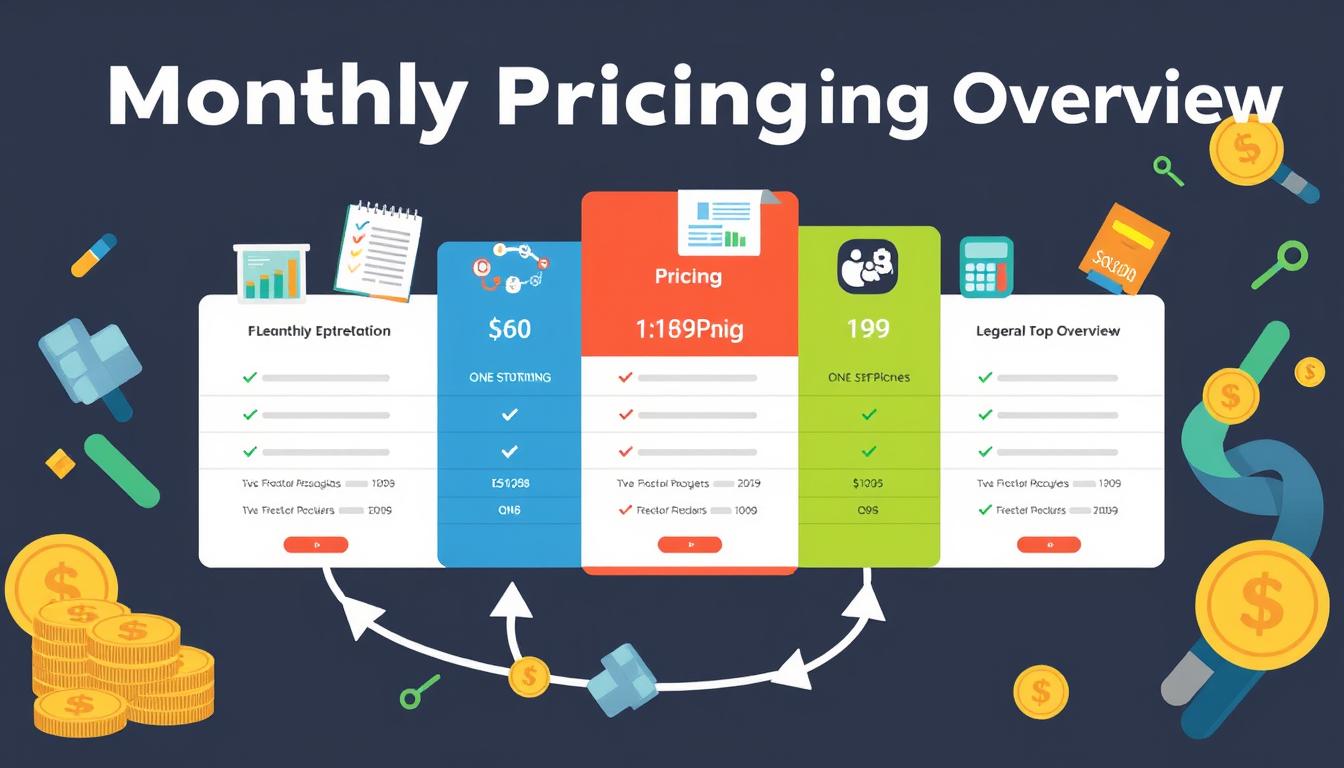
How much is quickbooks per month
Many users want to know the QuickBooks pricing for monthly costs. QuickBooks has various plans for different business needs. This lets users pick the right plan for their financial management.
What affects the QuickBooks monthly cost includes the QuickBooks edition, payment frequency, and extra features. This guide will explain the details of these plans. It will help you understand the costs of using QuickBooks for your business.

How does quickbooks work
QuickBooks is a key accounting software made by Intuit. It helps businesses manage their finances well. It works on a cloud-based platform, so users can access their financial data from anywhere.
This software makes tasks like bookkeeping, invoicing, and financial reporting easier. In this article, we’ll look at QuickBooks’ main features, its users, benefits, and challenges. We aim to help you understand how it can improve your financial management.

How do you record insurance payment in quickbooks
Recording insurance payments in QuickBooks is key for good insurance accounting. It helps business owners manage their money well and keep their books right. This is vital for the health of any business.
In this guide, we’ll show you how to record insurance payments easily. We’ll use QuickBooks guides and tips from accounting experts. This way, you can keep your financial records up to date.

How do you clock in hours in quickbooks desktop
In today’s fast-paced world, tracking time well is key for good payroll management. This article will show you how to clock in hours in QuickBooks Desktop. It’s a top accounting software that makes managing tasks easier. By learning how to track time, businesses can work better and pay employees right.
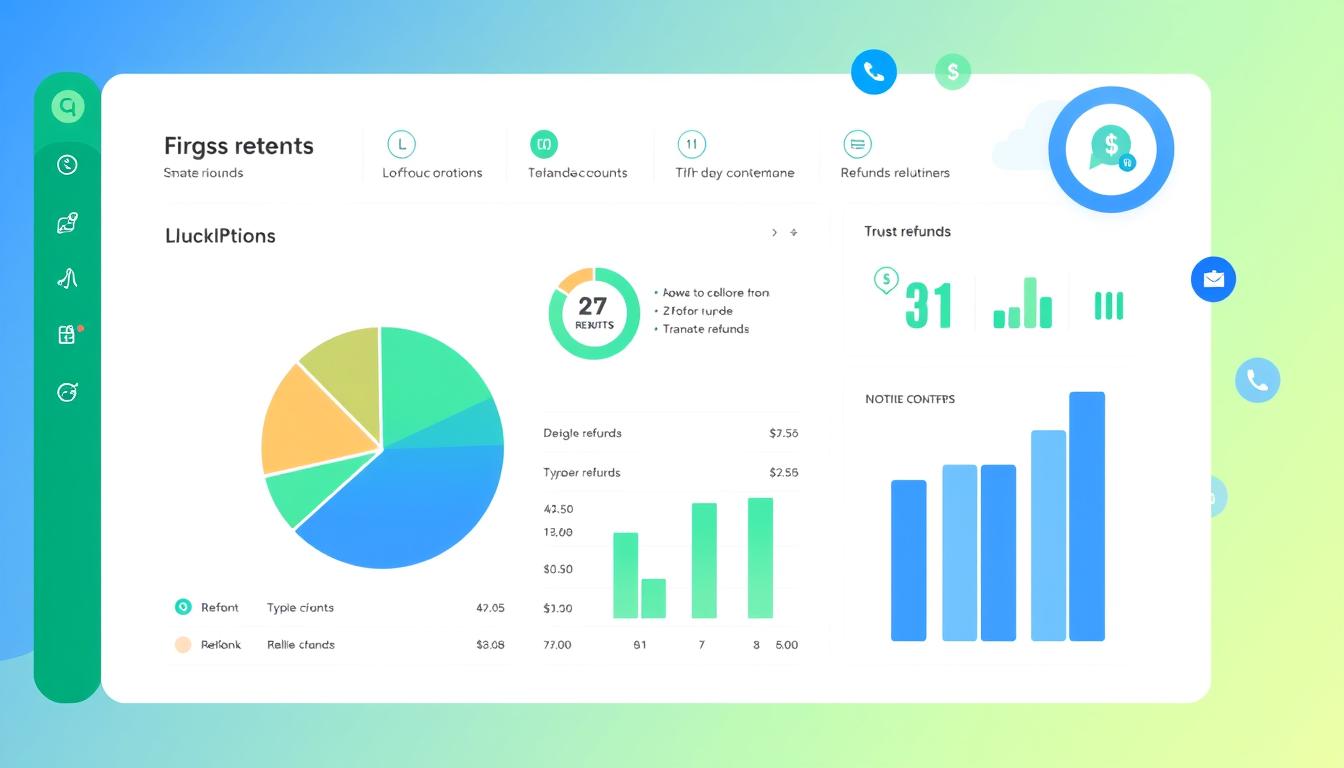
How are refunds categorized in quickbooks online
Knowing how to categorize refunds in QuickBooks Online is key for good financial management. It’s important to record refunds correctly to keep your finances clear. Businesses of all sizes can benefit from knowing how to do this right.
This knowledge helps make your financial records clear and accurate. It’s a basic step that can make a big difference.

Does quoteiq accept quickbooks online payments
Payment solutions are key in today’s business world. Many are looking into how platforms like QuoteIQ can improve their invoicing. A big question is: does QuoteIQ accept QuickBooks Online Payments? This article explores how QuoteIQ and QuickBooks Online Payments work together.
This shows how important it is to have good payment integration. It helps with cash flow and makes operations smoother. We’ll look at the benefits of using QuoteIQ with QuickBooks Online Payments. Plus, we’ll show you how to set it up.

Can you delete history under audit log quickbooks online
It’s important to know if you can delete entries from the audit log in QuickBooks Online. This is key for businesses that focus on financial accuracy and follow the rules. The audit log QuickBooks Online keeps a detailed history of changes to financial data. This ensures that all account activities are recorded clearly.
By tracking these changes, the audit log is crucial for good financial management. We will look into why the audit log matters and what happens if you try to delete its records. We’ll see how these actions impact your QuickBooks history.
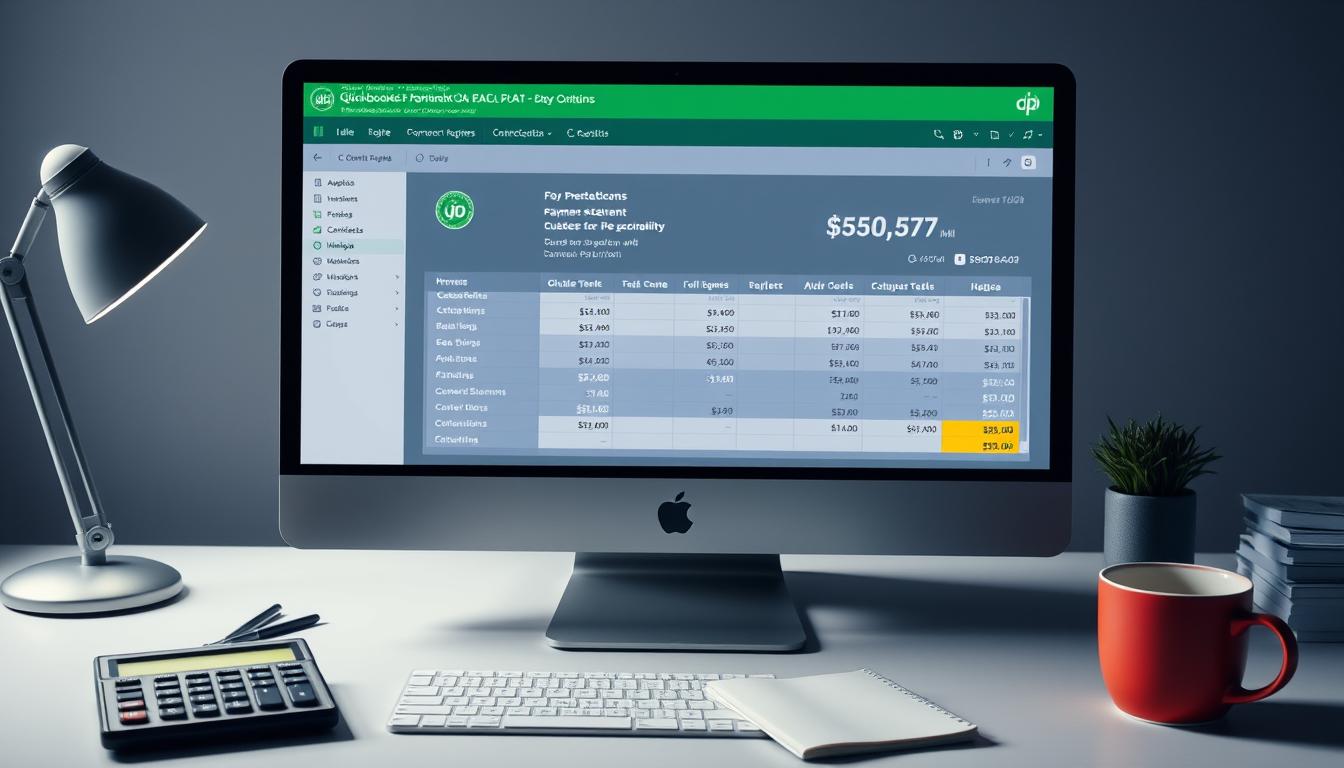
Can quickbooks recievepayment by statements rather that individual invoices
In today’s fast-paced world, businesses need quick and easy ways to handle payments. Many QuickBooks users wonder if they can pay by statements instead of invoices. This method makes accounting simpler for companies.
Using payment statements has big advantages over traditional invoices. QuickBooks helps businesses manage payments better. This article will show you how payment statements work in QuickBooks and how they can help your business.
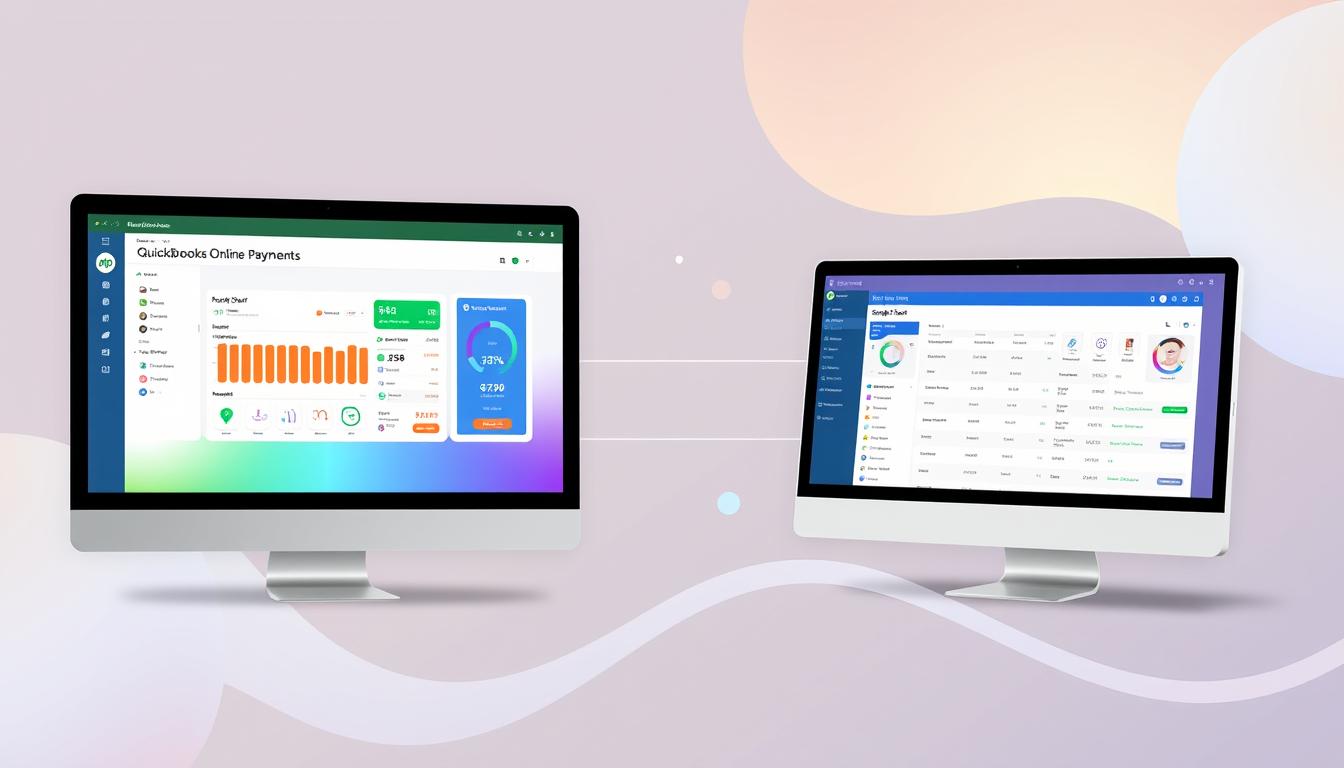
Can quickbooks online payments work with simple start
For small business owners, the question of whether QuickBooks Online Payments and QuickBooks Simple Start can work together is key. This integration is vital for managing finances effectively. It helps users handle transactions smoothly while using a basic accounting tool for solo businesses.
QuickBooks Online Payments lets users take payments online, making cash flow management easier. In this article, we explore how these two tools can boost efficiency for small businesses.